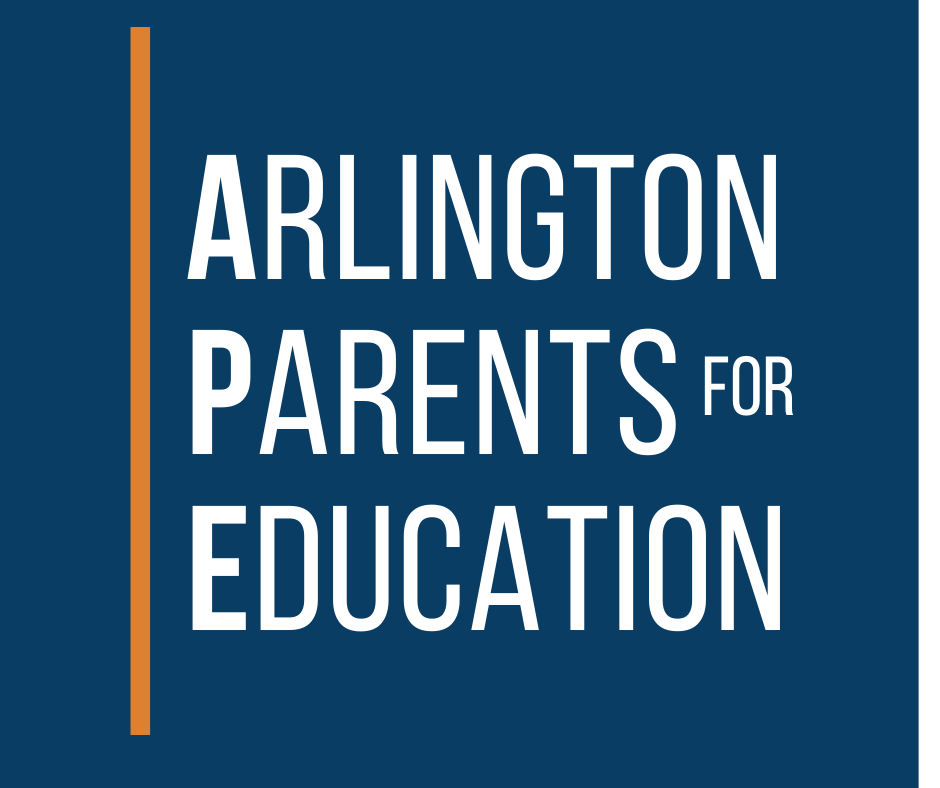Summary of the 3/16/23 School Board Meeting
3/16 School Board Recap
First hour was closed session to convene with legal counsel regarding collective bargaining.
Highlights and Key Takeaways from the Meeting Include:
APS/ACPD partnership:
Memorandum of Understanding (MOU) currently under review (last revised last spring).
MOU defines how APS and ACPD collaborate on emergency response and threat assessment as well as educational programming and support for school-based activities.
Any changes to MOU for 2023-2024 SY will be announced in August.
Social-Emotional Survey of APS students:
April 24-28–survey will be taken
Parents must opt-out by March 29th by completing the survey here
Results available to parents in May
Community Conversations around School Climate/Safety: Dr Priddy asked how the public can access the student discipline data. Answer:
“Still have to build out the dashboard’ on the website
Discipline data presented at Community Conversations is new data
Monitoring Item: DEI Update: Dr. Ty Byrd
Ms. Kadera asked about acceptance and inclusion for neurodiverse students and how from a school climate and culture perspective we are doing to combat bullying and in particular SWDs. She has heard from many parents about these issues “How does DEI work with Office of School Climate and Culture to work on this?”
Dr. Byrd responded by saying that School and Climate through Student Services is a ‘conversation that is ongoing’ about how to create a climate of belonging for all students.
Mr. Priddy asked a question about how many FTE’s they are asking for in upcoming budget.
Dr. Byrd replied that his understanding is that there are 6 FTEs, but that they are are currently half school-based (.5 FTE is funded by the school). They would then all come under the DEI office instead of being school-based. Mr. Priddy said he would follow up with a specific written budget question to get the answer to the question he was asking.
Ms. Sutton asked about the phases and specifically unconscious bias training.
Dr. Byrd responded by saying that:
Phase I (initial training) will be pre-service–all new teachers and new to APS teachers.
Phase II will be ‘job-embedded’ individualized professional development that continues over the year. Hoping to develop Canvas class and surveys as well as self-reflection of staff.
Phase III is Behavioral Changes–Dr. Byrd mentioned that they have engaged a consultant to help measure this.
Phase IV: Sustaining Cultural and Behavioral Change–this is in process
Ms. Sutton asked for concrete examples of what it looks like in practice because this topic is typically “very heavy on theory.”
Dr. Byrd responded by stating:
$90 million a year goes into bias training nationally and very little goes into measuring.
DEI office pulled into a third party to see the forest through the trees because they ‘want a true measurement’
Ms. Diaz-Torres thanked them for the new DEI dashboard with a question about how the data will be used in the future and the timeline for updating the tool on an annual basis. She is concerned that the discipline data not being added is a ‘concern’. We need to look at the ‘warts’--can’t solve the problem without facing it.
Dr. Byrd stated that it should “all be updated annually”. Discipline data addition timeline still unclear but attendance data “should be updated regularly” but he is not sure what “regularly should look like.”
Ms. Diaz-Torres asked about the predictive analytics program discussed and what it would look like.
Dr. Byrd responded by saying the goal was to have data that accurately predicts where a student is likely to go academically so they can intervene in a timely manner. For example, if a third-grader is not on grade level, we should be noticing that and intervening now because we know by 8th grade there will be impacts if the student is not on grade level in 3rd grade. Also, want to use predictive analytics to help promote greater uptake of accelerated/advanced classes in HS. He noted that the analytics program they are using is free.
Ms. Kadera asked a question about what ‘value-add’ the predictive analytics program will provide versus our existing knowledge base because ‘we already know and have a sense of urgency about those students who are behind.’ She asked for a separate meeting to discuss specifically what the program would add to what we already know about academically-vulnerable students.
Ms. Kadera also commented on the need for APS to look holistically at everything asked of staff because she is hearing that they feel overwhelmed by all the asks made of them. She emphasized how APS needs to articulate its priorities and values and make sure they are aligning them with the required staff training and development and other staff requirements.
IDEA funding–APE applies annually required by VDOE to state how they will use grant money. The presentation gave an overview of the application details and how APS plans to spend the money. School Board must approve the plan which will be done at the April 13th meeting.
Policy changes:
HS credit at MS policy: the only change is to change ‘his/her’ to ‘their’ in the manual.
To see our Scorecard for this meeting, click here.
